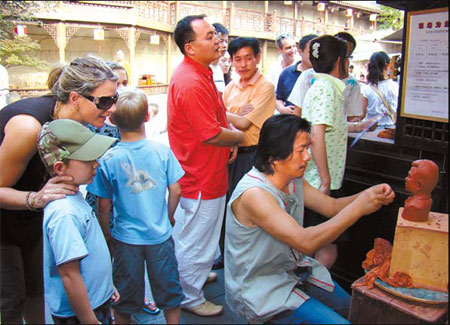 |
|
Overseas visitors in Jinli, a street in Chengdu with traditional Chinese architecture style. [China Daily]
|
The city's greatest advantage, he says, is human resources. While factories in many coastal cities suffer a shortage of skilled workers, Ge says Chengdu has made vocational education one of the top priorities of the city's policymaking.
'I am really concerned about training 'grey collar' and 'blue collar' workers," he says.
In addition to stipends from the central government, the local government offers extra subsidies to workers and their children living in the Chengdu suburbs so they can receive technical training. The subsidy will cover all school costs, and in some cases, even family living expenses.
The local government encourages high school students to attend vocational schools if they fail to enter college. In December, the city spent 350 million yuan (US$51 million) to build a vocational school. The school, which will begin recruiting students in September, plans to send over 10,000 technicians per year to Chengdu and beyond.
Chengdu aims to become a base for the information technology, automotive and food processing industries. A vast number of skilled workers will be needed to fill the gap. According to its initial plan, the school will offer training courses and cooperate with enterprises to supply talent to enterprises.